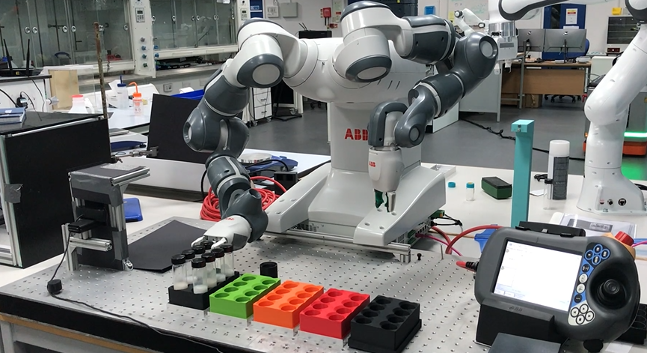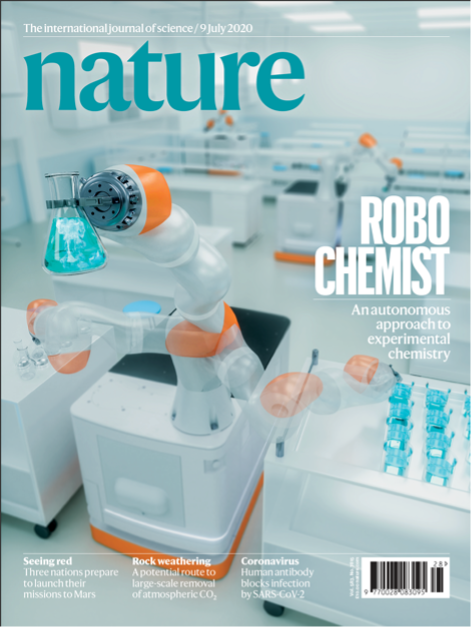The automation of synthetic chemistry has accelerated over the past decade, underpinned by developments in computer science and engineering. Recent work in the Cooper Group has demonstrated the potential of high-throughput robotic/automated synthesis capabilities when coupled with optimisation algorithms (e.g., Nature, 2020, 583, 237). This closed-loop approach to reaction optimisation enabled hundreds of experiments to be conducted over periods of multiple days with no human input. For a video showing this robot in operation, see: https://youtu.be/ehjMBDFhZ5A. Compared to automation in other scientific disciplines (e.g. biology), the field of automated chemistry is still in its infancy, providing exciting opportunities for chemists to develop new tools and methods for chemical discovery.

For the Prosperity Partnership we hope to build on the expertise in the Cooper Group to achieve two key objectives:
To achieve these goals will require the collaboration of mechanical engineers, roboticists, computer scientists and chemists. Through the development of these methods we hope to build a platform that will enable the discovery of new biodegradable polymers for use in home care applications.
